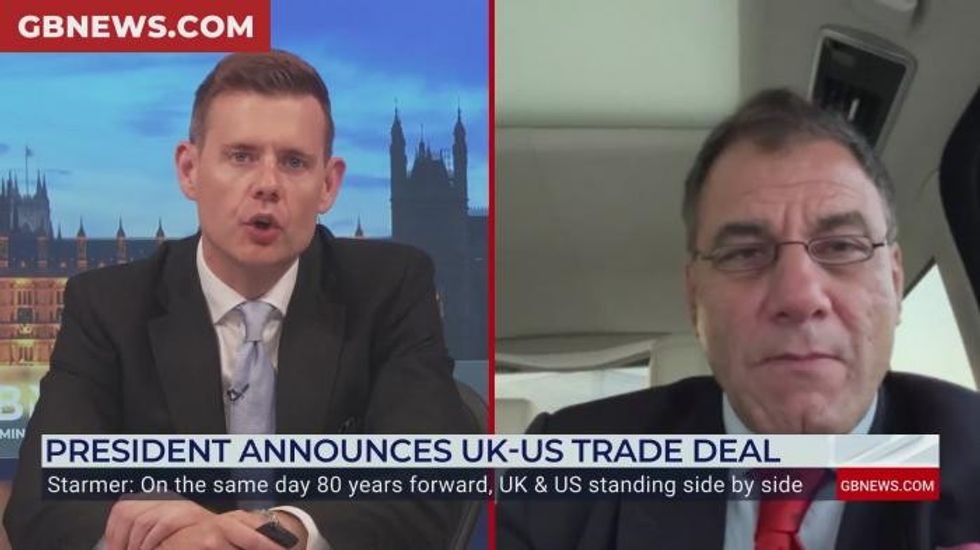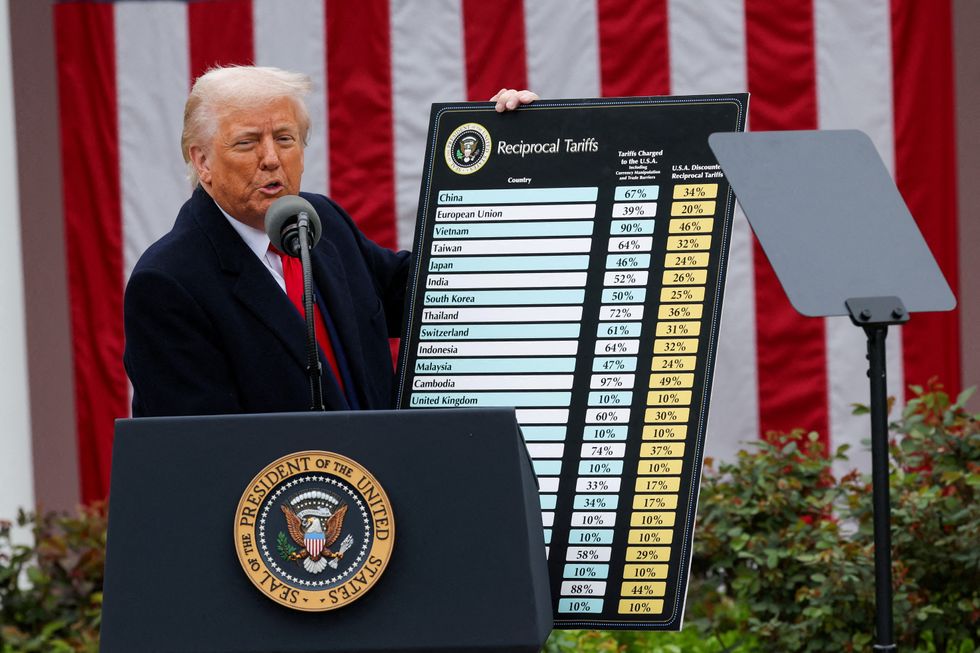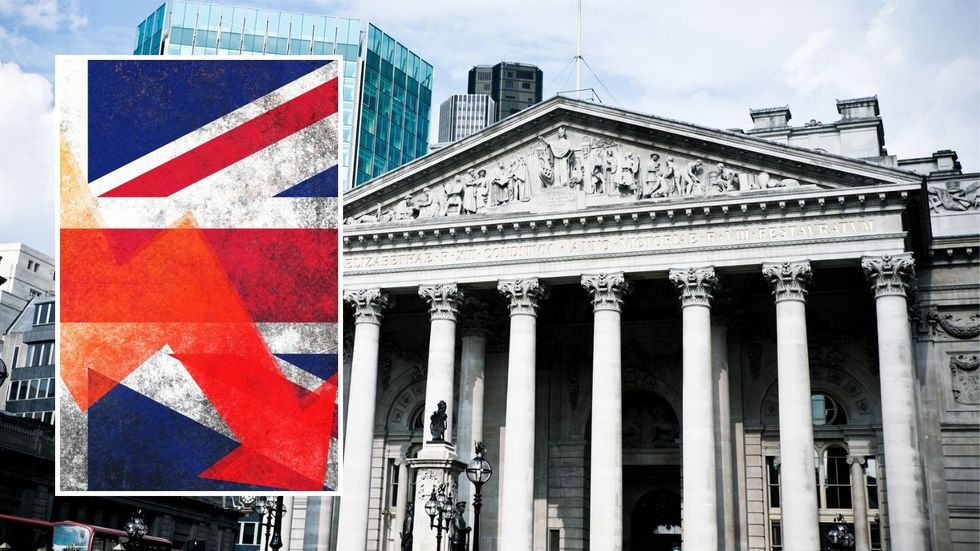Rachel Reeves faces toughest test yet as IMF launches probe into Labour's economy 'reform'
Chancellor Rachel Reeves's economic agenda will face its biggest test year yet as the International Monetary Fund (IMF) prepares to begin its inquiry into the fiscal agenda.The IMF's inspection team has started its annual "Article 4" examination, which determines the resilience and trajectory of a country's economy.This comes after two controversial Budgets from the Chancellor, which saw Reeves raise the rate paid towards employer National Insurance ccontributions and make pensions liable for inheritance tax (IHT).Since Labour's return to Downing Street last July, Prime Minister Keir Starmer has pledged to bolster gross domestic product (GDP) growth.In a blow to the Government, the IMF slashed Britian's growth forecast in the wake of US President Donald Trump's tariff threats in its latest World Economic Outlook.With this latest revision, the UK economy is projected to grow by 1.1 per cent in 2025, down from 1.6 per cent, and 1.4 percent for 2026.While hosting global finance ministers, the IMF warned the global economy is at a "critical juncture" with most other countries seeing their growth rare downgraded also.IMF inspectors are expected to visit Cambridge, which is being hailed as the centre of the UK's tech and life science innovation with the goal of rivalling Silicon Valley.Do you have a money story you’d like to share? Get in touch by emailing money@gbnews.uk.Notably, the financial agency will be looking into Britain's labour market, namely the 9.2 million working-age people who are deemed "economically inactive".Since the Covid-19 pandemic, this number has soared by 700,000 with many claiming sickness benefits for issues to do with metal health.This has resulted in £5billion worth in cuts to benefits, such as Personal Independence Payments (PIP) and Universal Credit, as part of wider reforms to the Department for Work and Pensions (DWP).The Office for Budget Responsibility (OBR) has cited loss of tax revenue from this part of the workforce as being a danger to the UK's long-term financial stability. Reacting to the IMF's forecast, Reeves cited that the UK was still the fastest growing European G7 country due to "reform which will drive up long-term growth in the UK".She noted that "the world has changed" and she would be in Washington this week "defending British interests and making the case for free and fair trade".LATEST DEVELOPMENTS:'Economy is on its knees!' Bank of England SLAMMED for not going far enough with interest rate cutsBank branch closures update: NatWest to shut down dozens of locations next month - full list hereBank of England warns UK economy at tipping point despite US trade dealAs well as this downgrade, the IMF has predicted multiple interest rate cuts from the Bank of England which will reduced the cost of borrowing and doing business in Britain.Last week, the central bank's Monetary Policy Committee (MPC) voted to cut the country's base rate from 4.5 per cent to 4.25 per cent.Huw Pill, the Bank of England's chief economist, said: "I think it is important to say that the analysis in the baseline forecast does not suggest that there’s a dramatic shift in the behaviour of the UK economy, on the back of these trade announcements and trade uncertainty."

Chancellor Rachel Reeves's economic agenda will face its biggest test year yet as the International Monetary Fund (IMF) prepares to begin its inquiry into the fiscal agenda.
The IMF's inspection team has started its annual "Article 4" examination, which determines the resilience and trajectory of a country's economy.
This comes after two controversial Budgets from the Chancellor, which saw Reeves raise the rate paid towards employer National Insurance ccontributions and make pensions liable for inheritance tax (IHT).
Since Labour's return to Downing Street last July, Prime Minister Keir Starmer has pledged to bolster gross domestic product (GDP) growth.

In a blow to the Government, the IMF slashed Britian's growth forecast in the wake of US President Donald Trump's tariff threats in its latest World Economic Outlook.
With this latest revision, the UK economy is projected to grow by 1.1 per cent in 2025, down from 1.6 per cent, and 1.4 percent for 2026.
While hosting global finance ministers, the IMF warned the global economy is at a "critical juncture" with most other countries seeing their growth rare downgraded also.
IMF inspectors are expected to visit Cambridge, which is being hailed as the centre of the UK's tech and life science innovation with the goal of rivalling Silicon Valley.
Do you have a money story you’d like to share? Get in touch by emailing money@gbnews.uk.

Notably, the financial agency will be looking into Britain's labour market, namely the 9.2 million working-age people who are deemed "economically inactive".
Since the Covid-19 pandemic, this number has soared by 700,000 with many claiming sickness benefits for issues to do with metal health.
This has resulted in £5billion worth in cuts to benefits, such as Personal Independence Payments (PIP) and Universal Credit, as part of wider reforms to the Department for Work and Pensions (DWP).
The Office for Budget Responsibility (OBR) has cited loss of tax revenue from this part of the workforce as being a danger to the UK's long-term financial stability.
Reacting to the IMF's forecast, Reeves cited that the UK was still the fastest growing European G7 country due to "reform which will drive up long-term growth in the UK".
She noted that "the world has changed" and she would be in Washington this week "defending British interests and making the case for free and fair trade".
LATEST DEVELOPMENTS:
- 'Economy is on its knees!' Bank of England SLAMMED for not going far enough with interest rate cuts
- Bank branch closures update: NatWest to shut down dozens of locations next month - full list here
- Bank of England warns UK economy at tipping point despite US trade deal

As well as this downgrade, the IMF has predicted multiple interest rate cuts from the Bank of England which will reduced the cost of borrowing and doing business in Britain.
Last week, the central bank's Monetary Policy Committee (MPC) voted to cut the country's base rate from 4.5 per cent to 4.25 per cent.
Huw Pill, the Bank of England's chief economist, said: "I think it is important to say that the analysis in the baseline forecast does not suggest that there’s a dramatic shift in the behaviour of the UK economy, on the back of these trade announcements and trade uncertainty."







































